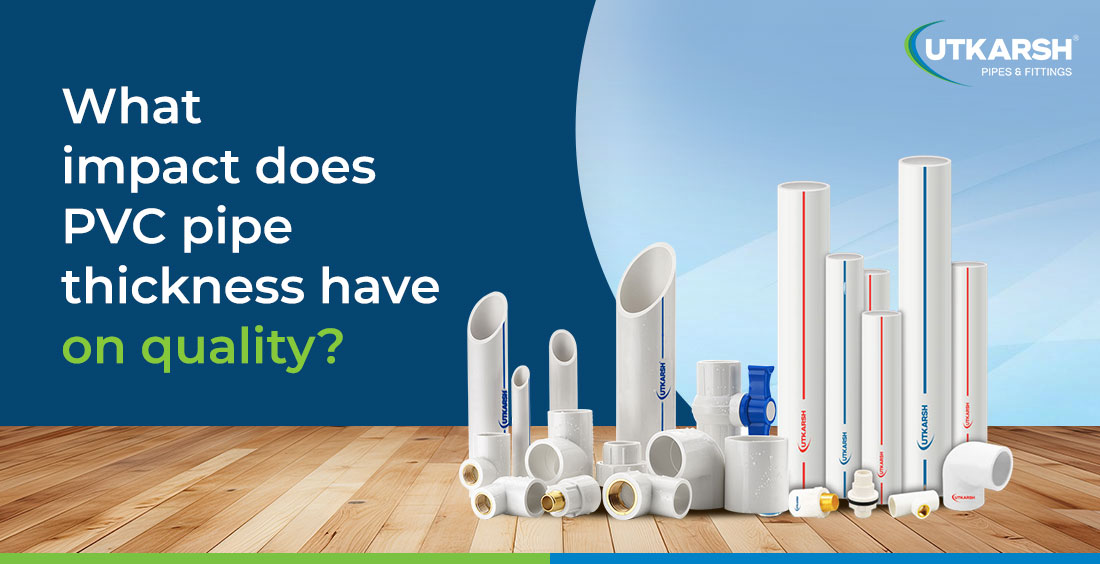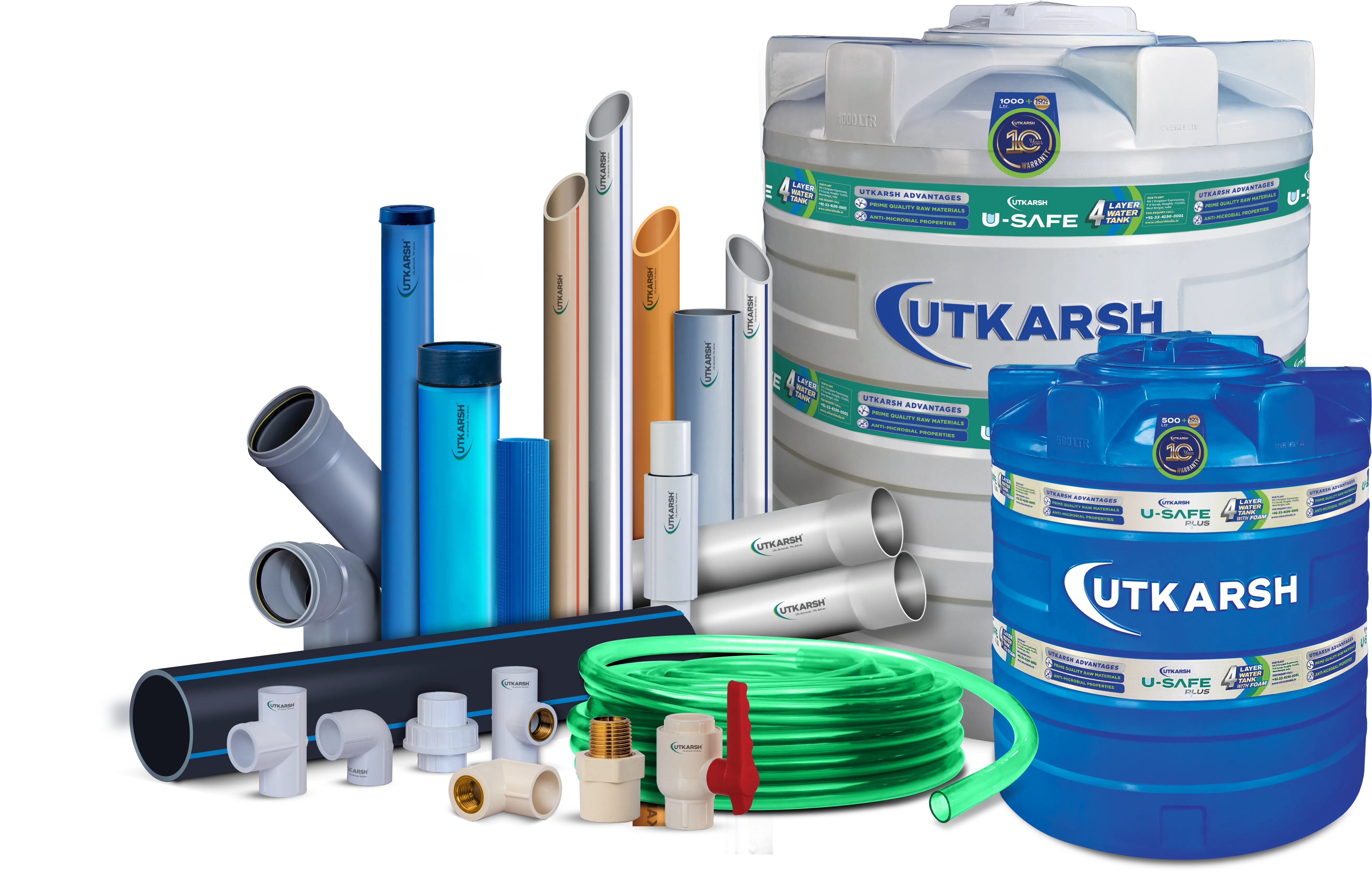What impact does PVC pipe thickness have on quality?

The thickness of PVC pipes directly determines their strength, durability, and long-term performance. Whether you need plumbing solutions for your home, irrigation systems for your farm, or reliable piping for industrial applications, choosing the correct pipe thickness saves you from costly repairs, leakages, and early replacements down the line. In this post, we'll explore exactly why thickness matters and how you can confidently identify the right PVC pipes.
Why Does Pipe Thickness Matter?
1. Strength and Durability
Thicker PVC pipes handle higher pressure - this makes them ideal for applications where strong water flow or external force is involved. In irrigation, for example, pipes must endure constant water pressure, fluctuating temperatures, and occasional mechanical stress from vehicles or animals. A thicker pipe resists these forces better and lasts longer.
2. Resistance to External Pressure
In underground applications, soil movement, heavy loads, and moisture exposure put pipes under stress. Thin-walled pipes may crack under such conditions - which can lead to leaks and costly repairs. Opting for thicker pipes ensures resistance to these external pressures.
3. Longevity and Reduced Maintenance Costs
Thicker pipes have a longer lifespan since they resist wear and tear better than their thinner counterparts. Opting for pipes with higher thickness means fewer chances of cracks, leaks, and breakages, thereby reducing maintenance costs in the long run.
4. Temperature Resistance
Indian summers can be harsh, with temperatures soaring above 45°C in many regions. Thin PVC pipes tend to warp or become brittle under extreme heat. Thicker pipes withstand temperature variations better.
5. Higher Pressure Rating
A pipe with higher thickness can handle greater pressure. It is suitable for applications such as borewell connections, municipal water supply, and industrial use.
How to Choose the Right PVC Pipe Thickness
Choosing the appropriate PVC pipe thickness is crucial for ensuring performance, safety, and longevity. The right thickness depends largely on the application. Here's a quick guide to help you decide:
Household Plumbing: Medium-thickness pipes are generally sufficient for everyday water supply and drainage.
Industrial or High-Pressure Systems: Use pipes with greater wall thickness to withstand higher pressure and stress.
Underground Installations: Opt for extra-thick pipes to resist soil pressure and external impact.
Irrigation Systems: Pressure-rated pipes are ideal for maintaining a consistent water flow over long distances.
Common Myths About PVC Pipe Thickness
1. Thicker Pipes Are Always Better
While thickness improves durability, choosing an unnecessarily thick pipe for a low-pressure system wastes money. Assess your needs before selecting.
2. Thin Pipes Are Just as Strong
Not true. Thin pipes may work for short-term applications but fail under stress.
3. All PVC Pipes Are the Same
Pipes differ in quality, material composition, and thickness. High-quality pipes following BIS (Bureau of Indian Standards) regulations ensure consistent performance.
At Utkarsh India, we are committed to delivering excellence in PVC piping solutions. As one of the trustworthy PVC pipe manufacturers and PVC fittings manufacturers, our products offer reliability and long-term performance across various applications. Our manufacturing facilities adhere strictly to Indian and international quality benchmarks, including ISO, EN, BIS, BS, and DIN. With a strong Pan-India distribution network supported by more than 10,000 trusted channel partners, we have established our presence not only nationally but also globally—exporting our superior-quality products to over 35 countries worldwide.












